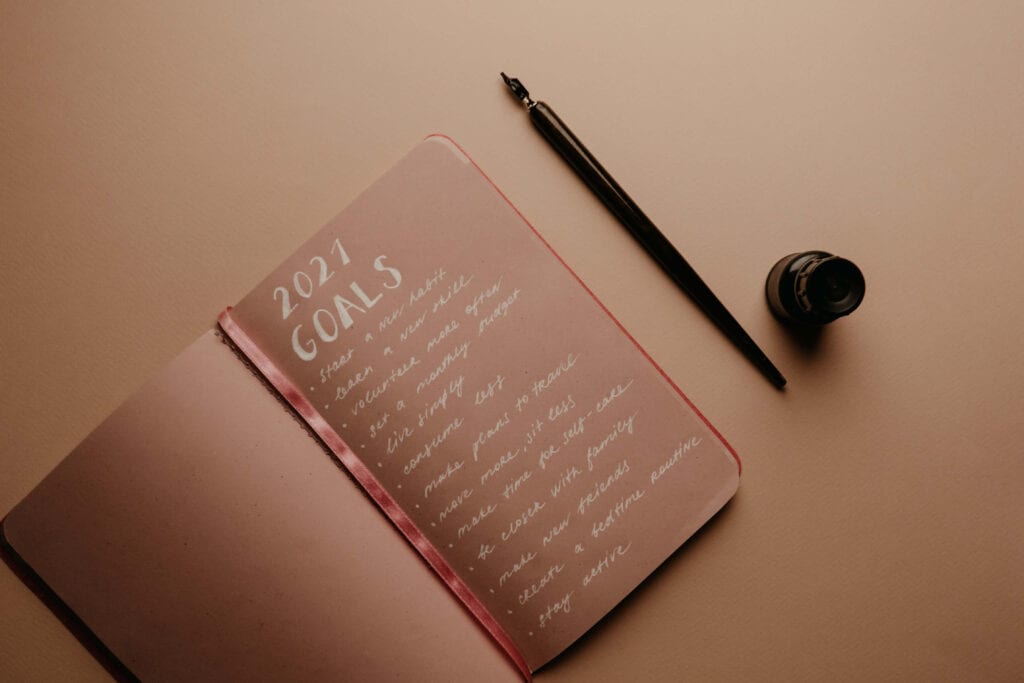
New Year’s Depression: January is the Monday of the year
If you type “Monday Memes” into Google just for fun and click on the image search, you’ll realise the extent of despair people feel when thinking about Monday. Pictures of irritated cats with captions like “When it’s Monday and you still haven’t had coffee” or “Not sure if it’s the end of the world or just Monday”.
We all know what Monday morning feels like after a weekend off and how we are in no mood to get back to everyday duties.
It’s as if the month of January is the Monday of the year. The festive hubbub is gone and suddenly everything is about to start over.
As part of our theme month #resolutionfail, in this article we’ll ask ourselves: Why is it that January is generally so difficult for us, and what can help us get through this month?

Blue Monday: Worst day of the year?
According to research by a British psychologist, people have decreed the third Monday in January – around 21 January – “the most depressing day of the year” for many years.
Science is still arguing about it and opinions differ as to which day causes us the greatest sense of despair. One thing is certain, however: if we compare the suicide rates (in Germany) over the past three years, January is at the top of the list (Statistical Office Germany).
There must be a reason for why so many feel as if we’re facing a big hole, a void, in January.
Good old January blues: When The hustle and bustle subside
During the last months of the year, it feels as if the whole world is preparing for three days: the Christmas holidays, including Christmas Eve. We buy gifts and plan get-togethers with family and friends. Then, all of a sudden, everything is over and the only thing that remains is a huge void.
Experts discern different reasons why we find the month of January particularly troubling:
- Miserable weather. The days are shorter, the body releases more of the sleep hormone melatonin and we feel like pulling the duvet over our heads. The months of January and February are like the final sprint for winter.
- Financial disaster. The Christmas gifts you bought put a dent in your account, and then there are any number of bills at the beginning of the year. Looking at their finances makes many people sick to their stomachs.
- The silly season is over. As early as the beginning of December, and particularly in the run-up to Christmas, you walk on air from one appointment to another.
This tempo accelerates over the Christmas days and between Christmas and New Year. Then, all of a sudden, everything is over and there is a hole in the calendar. - Your New Year’s resolutions grate on your self-image. You created this future version of yourself and wanted to do everything differently this year. Now a few weeks have passed and you can see that the first resolutions are beginning to fall apart. Motivation hits rock bottom and many start to doubt themselves.
January 2021: Probably a special challenge for all of us
Generally, January is experienced like a hangover after the holidays. There is also the fact that, at some point or another, 2020 made us all feel desperate. It will also have triggered emotions in us that we’re simply not comfortable with – from helplessness, to anger, to fear or panic.
At the start of the new year, many of us wish, albeit subconsciously, that our old way of life would return, that the situation would relax, and that we could start again where we left off. The motto is: “Everything will be different in 2021”.
Just the thought that we won’t be able to go back to our familiar everyday life overnight – just because a new year is approaching and the calendar turns a page – will also cause many of us frustration. We will realise this particularly keenly by about the end of January; we should be prepared for it.

Positive psychology and what we can learn from it
So it becomes clear that January will be a challenge for all of us. Such a humdinger of a month doesn’t make it easy to stay positive – especially not under the circumstances the whole world is experiencing.
“What can we help you with?” we asked ourselves in the team, and we came up with the idea of looking closer at the area of “positive psychology” in this article.
This is a sub-area of psychology that deals with, for example:
- What happiness means for people and society
- Whether and how one can measure happiness
- How we can become more content in our daily lives
It is a scientific approach to analysing human emotions, thoughts, and behavioural patterns while focusing on strengths rather than weaknesses.
The aim of this is to construct something new that makes you happy, rather than concentrate on the “old and bad” from the past.
This area of psychology deals primarily with topics such as strengths of character, optimism, happiness, well-being, compassion (for yourself and for others), self-confidence, hope and resilience.
However, it is important to mention that negative feelings should, of course, not be swept under the rug – no qualified psychologist or therapist would expect that of you. It is about balance, after all, and negative feelings are a part of life as well.
It’s more about accepting your negative emotions, taking note of them, and being gentle with yourself. Only in this way can we give all our colourful facets the attention they deserve, and then let them go again in order to focus on the positive things and change our perspective: away from the swamp, which is impossible to escape, and towards everyday life accompanied by a feeling of elation.

“Positive thinking” is easier said than done: How does one flip the switch?
You might be asking yourself now: It all sounds well and good, but how exactly can I integrate this into my life?
One inspiration could be the following studies and investigations in the field of positive psychology that have found:
- Financial well-being is overrated. People overestimate the influence money has on their well-being. It does impact on it, but far less than one would suspect. It therefore helps to direct one’s thoughts away from prosperity towards well-being.
- Experiences instead of stuff. Seeing as we’re on the subject of money, studies show that it makes you happier to spend it on experiences rather than material possessions. Especially experiences shared with others.
- Gratitude makes you happy. That can even be measured. People who feel grateful more often are happier than those who don’t. If you fall asleep every night thinking of something that you’re grateful for, or wake up doing it, you’ll already notice a big difference.
- Oxytocin as a happiness boost. The secretion of the happiness hormone leads to greater trust, empathy, and appreciation in people. Oxytocin is a “closeness hormone” and is produced when we experience pleasant eye contact or closeness. That is why it’s often referred to as the “cuddle hormone”.
- Being happy is contagious. People who are surrounded by happy people have been shown to feel happier than those who are not. So, surround yourself with positive people in case things don’t go well!
An experiment on yourself: Your courtesy day
Of course, theory is always exciting – it gets a lot more interesting when we put things into practice ourselves. To test the effect of positive psychology in your life, we have come up with a little experiment.
Being polite to yourself and to others is one of the strengths of character in positive psychology. In order to have a more content life, consciously employing these strengths of character in life is recommended to increase feelings of happiness.
Being polite and kind to others thus causes positive emotions and impacts us on a deep inner level.
The idea behind this experiment is that you pick a day to be consciously polite towards yourself and others. Of course, it should be a day when you’re feeling OK anyway and you aren’t starting the day in a totally grumpy mood.
You’ll begin with yourself as soon as you wake up. Your polite thoughts can start when you look at yourself in the mirror, get dressed, or prepare something to eat. Make sure that you speak to yourself politely. Just like you would with someone you value and respect very much.
Then, when it goes beyond yourself, you just continue with these “random acts of kindness”. It could look like this:
- Surprise someone by giving him or her something, e.g. coffee or cake
- Allow someone to go in front of you at the cash register or give someone right of way in traffic
- Smile at unknown people on the street
- Pay someone in the office (or on the street) a compliment
- Listen more and ask more questions instead of speaking yourself
- Ask your colleagues for help and thank them
That may sound strange at first and you may experience resistance right away. But it’s precisely now that you mustn’t allow your Monkey Mind to persuade you – go towards the feeling! To be polite to yourself and to others is something wonderful and nobody will hold it against you – and it is certainly not embarrassing.
You will find that it is not that easy to consciously stick to the process and persist with your courtesy day. However, if you manage to do it, you’ll notice the following effects first-hand:
- The people who receive your courtesies, both big and small, will feel loved and appreciated, if only for a short while.
- The oxytocin level in your body rises: your blood pressure falls, your heartbeat stabilises, and your self-confidence increases.
- You will have more energy on that day.
- You will feel more relaxed and less sad overall.
So, are you ready to end January on a happy note?
That is only one idea among many on how you can apply the power of positive psychology in your everyday life. If you get going, you can think up ideas yourself or research how you can steer your focus away from the negative and more towards the positive.
In the Humanoo app you will find mindfulness training on the topic of positive thinking, which will support you in catapulting yourself into increased well-being.
With our programme “Motivation through Introspection” you can develop positive qualities and recognise your own needs with the help of introspective meditation.
We look forward to supporting you on this path and giving you tools that strengthen a positive mindset and make you happier in the long term.
Your Humanoo Team